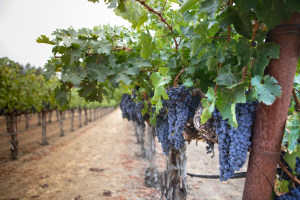2014 was Tetra Pak’s year. The company demonstrated its forward thinking on many occasions including developing the first carton made entirely from plant-based, renewable packaging materials in October (available commercially soon) and winning two awards at the World Beverage Innovation Awards in Nuremberg, Germany for environmental innovation in November.
But late in December, rival Elopack moved into the spotlight. It announced the imminent launch of a range of beverage cartons featuring certified renewable polyethylene (PE) When the range launches commercially (early in 2015), Elopak will be the first company to offer beverage cartons coated with second generation renewable PE, and made of European-sourced biomass not in competition with food supply.
Elopak’s goal is to replace all fossil-based raw materials with renewable alternatives as part of its Future Proofed Packaging Strategy. An increased use of bio-based PE helps reduce the use of fossil-based materials. This also reduces one of the largest sources of CO2 emissions in the beverage carton value chain.
“The beverage carton is the environmentally superior packaging choice, consisting of at least 75% renewable paperboard derived from responsibly managed forests. The remaining materials are mostly made of polyethylene, a polymer usually produced from fossil-based raw materials. Renewable PE brings us much closer to our vision of a 100% renewable carton. At the same time, we are further reducing the carbon footprint of the carton, a footprint which was already best in class within beverage packaging," stated Kristian Hall, director corporate environment at Elopak.
“This is a key milestone in Elopak’s efforts to reduce the environmental footprint of our products. We have a vision to deliver products with zero net impact on the environment, and this is an important step towards that goal," Elopak chief executive officer, Niels Petter Wright, added.
Bio-based plastics are generally made from crops. Elopack’s PE is produced from biomass from second generation feedstock. This is locally sourced within Europe and is not in competition with human food supply. The bio-based PE is certified through the entire value chain, by the International Sustainability and Carbon Certification system (ISCC PLUS). ISCC PLUS sets strict requirements for sustainability and traceability through the entire value chain, with chain of custody certification based on a mass balance system.
The new carton comes one month after Elopack launched Pure-Pak Sense, a carton with easy-to-fold lines that enables consumers to fold the carton and squeeze out more of even high viscosity products from the pack.
The easy-to-fold lines make it easy to flatten the empty carton, reducing volume in waste or recycling facilities.
Pure-Pak Sense runs on existing filling lines with a minimal investment in a retrofit kit. A one litre Pure-Pak Sense carton is available now, a 500ml carton will be early in 2015 carton will be early in 2015.
The carton features an arched top fin with a print option that facilitates range and promotional communication. The rounded smooth front of the carton provides a seamless print area and a new form and shape. This carton both looks and feels different with an embossed ‘first touch’ zone on the top sides of the pack for better handling.
Elopak’s director global marketing, Dr. Christoph Schönig, commented, “Today a carton has to be more than just a generic package for liquid food. Packaging is an important element of the marketing mix for our customers and as such it must enable business growth.”





